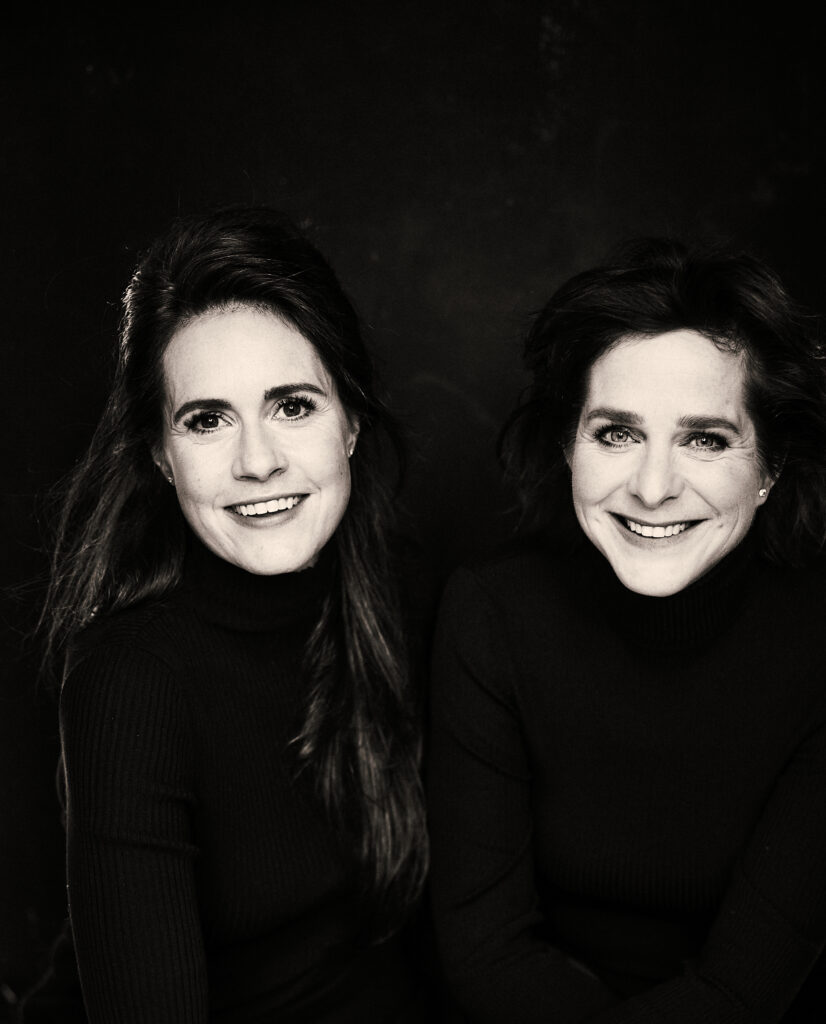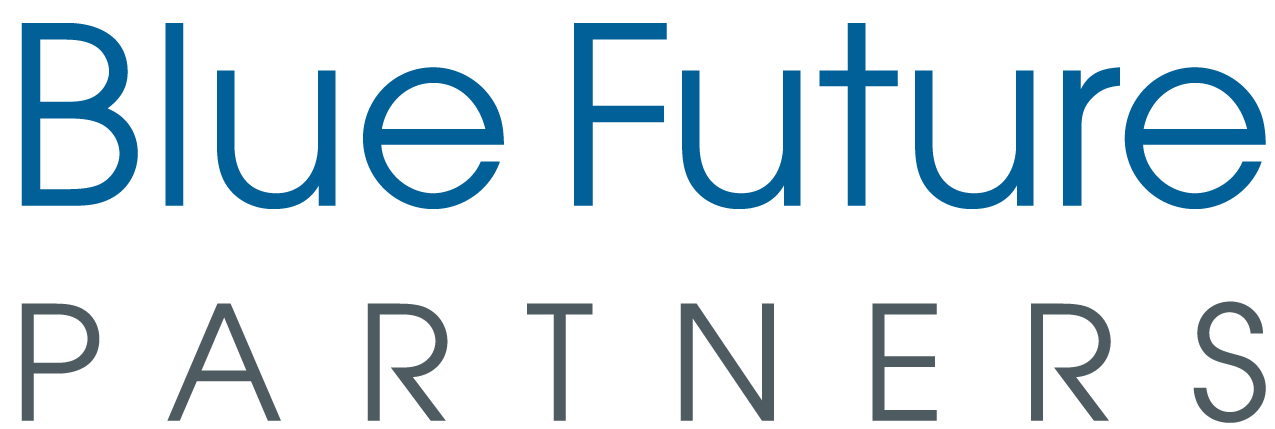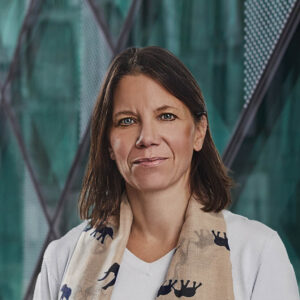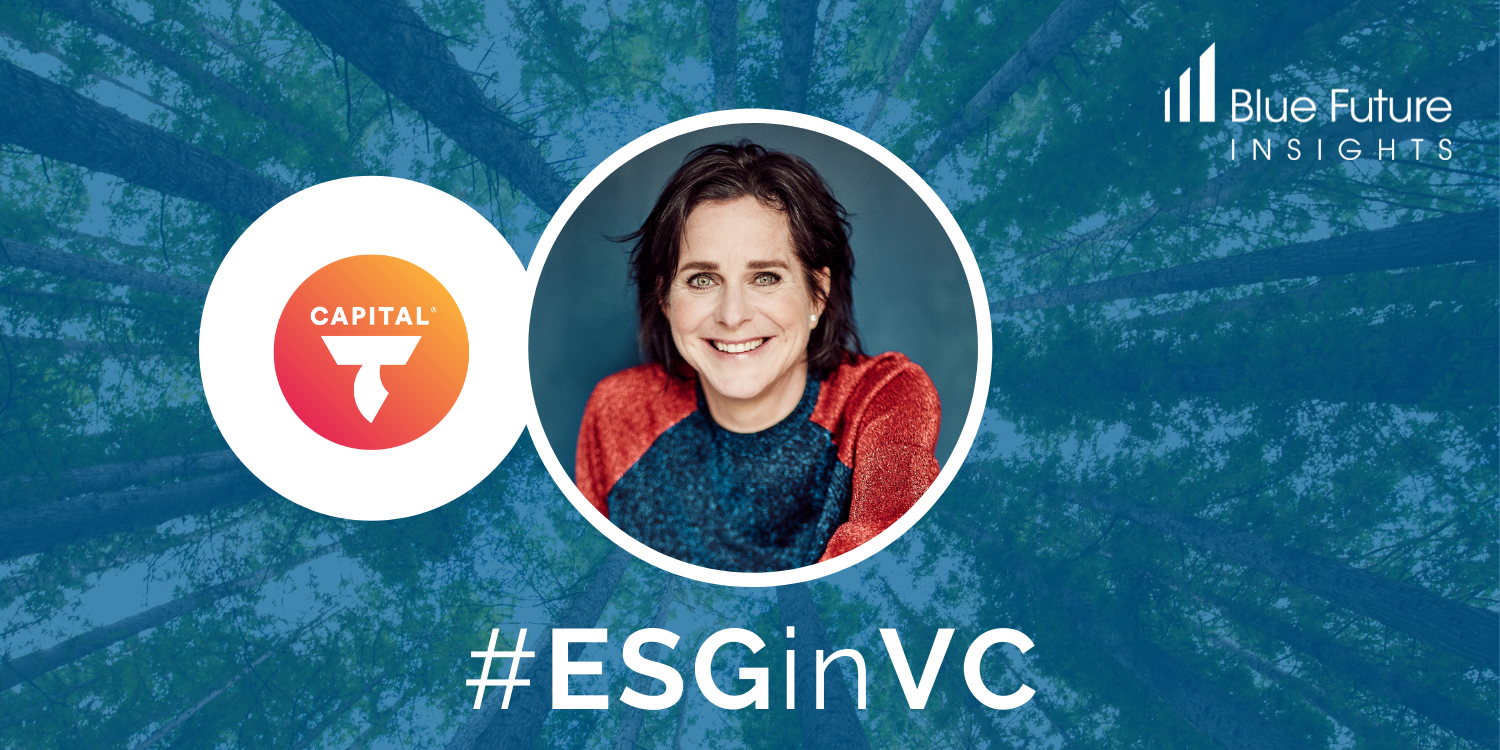With our #ESGinVC initiative, we want to foster a discussion around ESG and help each other develop and improve our frameworks. As part of this initiative, we spoke to leading managers and LPs about their ESG frameworks. The long-form interviews will be published in a reader on our website, while we will regularly post interview extracts on our social media channels (Linkedin — Twitter — Medium).
The interview below is with Janneke Niessen, Co-Founder at CapitalT.
—
How do you tackle ESG responsibility at CapitalT?
At CapitalT, we believe that adopting ESG principles across all fund processes, from due diligence to portfolio management, is going to become the new standard. ESG isn’t just for the sake of philanthropy, it’s obviously a critical component for businesses. ESG principles also help us as a fund, in addition to our portfolio companies, build businesses that operate in ethical, responsible and sustainable ways. Since we have a strong environmental focus with our fund, we mainly strive to contribute to the sustainable development goals revolving around the environment. These are “responsible consumption and production”, “sustainable and innovative industrialization” and “climate action.”
“…we believe that adopting ESG principles across all fund processes, from due diligence to portfolio management, is going to become the new standard.”
We also take inspiration from the work the EU is doing with regards to the European Green Deal and echo its goal to make the EU’s economy sustainable by turning climate and environmental challenges into opportunities and making the transition just and inclusive for all.
You are using a science-based model to evaluate founder teams. How exactly does it work and how does it help to eliminate biases?
CapitalT has developed VCVolt, a unique computerized model based on original research done by Eva de Mol, the other partner of the fund, that analyzes founding startup teams. We look at personality traits where we focus at those elements that have a proven positive impact on venture success, such as perseverance, stress resistance and passion for entrepreneurship.

Next, we look at human capital skills like startup experience, failure experience, industry experience and if the skills and knowledge in the team are truly complimentary. Last but not least, we look at the team dynamic. Founders can make their visions come to life with a fresh perspective on their team’s hard and soft skills. This data-driven approach not only helps remove bias, but also generates better results.
Do you have a framework in place to measure the impact of your portfolio companies? Beyond sustainability, do you also monitor other ESG metrics?
We apply the ESG framework of The Venture ESG Initiative when it comes to due diligence and management of our portfolio companies. During due diligence, we focus mainly on encouraging the founders to consider ESG with specific topics in mind.
First of all, we evaluate the company mission statement and vision and the potential for positive and negative societal impact of the goal. Then we explore the founders’ mindset around ESG, identifying the extent to which they have considered potential adverse impacts of the business and determining if the company is adhering to certain legislation and regulation.
“The existing frameworks are not fit for purpose or designed for early-stage companies and the types of risks and strategic opportunities on their plates.”
We also look for any obvious red flags relating to ESG and the commercial model and assess the company’s approach to data management. Finally, we consider the diversity at the company, inclusivity of its culture and the overall view on diversity.

We are active members of the ESG for VC initiative to help shape a framework that fits early-stage companies and the capacity, time and resource constraints they face. The existing frameworks are not fit for purpose or designed for early-stage companies and the types of risks and strategic opportunities on their plates. We believe this type of framework will help founders and CEOs realize that ESG initiatives should be integrated into the fabric of the company as they carry strategic and operational value.
What are the biggest challenges that female GPs face and what can the investment community do to better support female investors?
Women continue to receive less funding than their male counterparts, and people of color fare even worse. Part of this is because the investment community is not always actively reaching out or making it easy for female founders to access them (including being open to cold inbounds), are not conscious about bias and pattern matching and are not visible in different entrepreneur networks.
If you look at all entrepreneurs and select the best ones, you will be able to look at dealflow from all entrepreneurs instead of just a small subset in your network. Also, being data-driven in your approach will help removing bias. CapitalT’s portfolio is 94% diverse across women, BIPOC and LGTBQ+ founders for these reasons.
Due to research that my business partner Eva de Mol and I conducted on the investments in female entrepreneurs in The Netherlands, different players in the venture capital industry have joined forces and agreed on a quota to support more diverse talent in the region. This will help create an actual level playing field for a broader group of entrepreneurs.
What conversations do you have with your LPs around ESG? Is attention to ESG driven more by them or by the GPs?
We share ESG performance of our own business and our portfolio companies’ in our annual reports to our LPs. We also contribute the data to the ESG in VC group so they can be anonymized and reported on for the purpose of research and benchmarking.
—
About CapitalT
CapitalT supports entrepreneurs of all backgrounds who develop brilliant teams that they want to be a part of, who build purpose-driven companies around the technologies of the future and who have the passion and intuition to transform their expert ideas into real breakthroughs.
CapitalT invests at pre-seed and seed stage in companies solving real problems with AI in climate tech, future of work, web3 and education.
Website – Linkedin – Twitter
About Janneke Niessen
Janneke is founding partner at CapitalT, serial entrepreneur, angel investor, board member and diversity advocate. She has started and exited two international technology companies. She is on the board of several organisations and is regularly asked for advice by the goverment, all on the crossroads of technology, talent, investing and diversity. She speaks regularly at international events, appears in podcast and writes for several publications such as Fortune MPW, TNW, Wonder Women Tech, Inc, Cambridge and Jinek.
Janneke is a strong supporter of more diversity in venture capital and one of the initiators of #Fundright, a self-imposed quota for venture capital investors to improve inclusion in the investment ecosystem. She has been named one of Harper’s Bazaar Women of the Year, one of the 10 most prominent angel investors, Most Innovative Leader and EY Entrepreneur of the Year.
Linkedin – Twitter
About Sabine Kaiser
Sabine has worked with Blue Future Partners as an external advisor since 2017. With more than twenty years of investment experience, Sabine has extensive expertise in fund manager selection and allocation spanning across private equity and venture capital. Previously Sabine was in charge of managing illiquid PE/VC/Credit fund investments and regional asset allocation at BTV, a German single-family office. Prior to that, she worked as a venture capital investor in the field of life science and as a strategic consultant with McKinsey & Company.
Linkedin
About Blue Future Partners
Blue Future Partners is a Fund of Funds with decades worth of experience in investing in Venture Capital. We specialize in backing Emerging Managers focused on early-stage technology investments.
Website – Linkedin – Twitter – Medium








